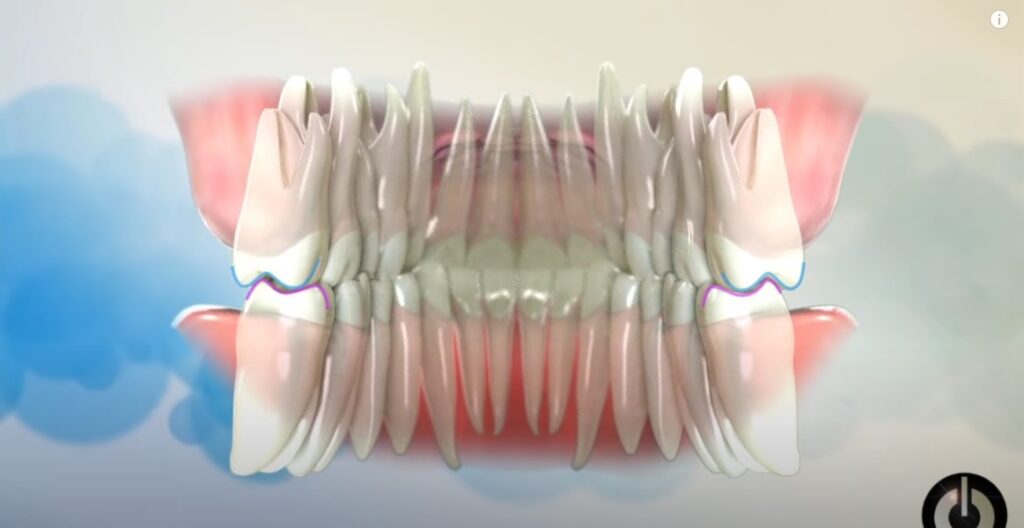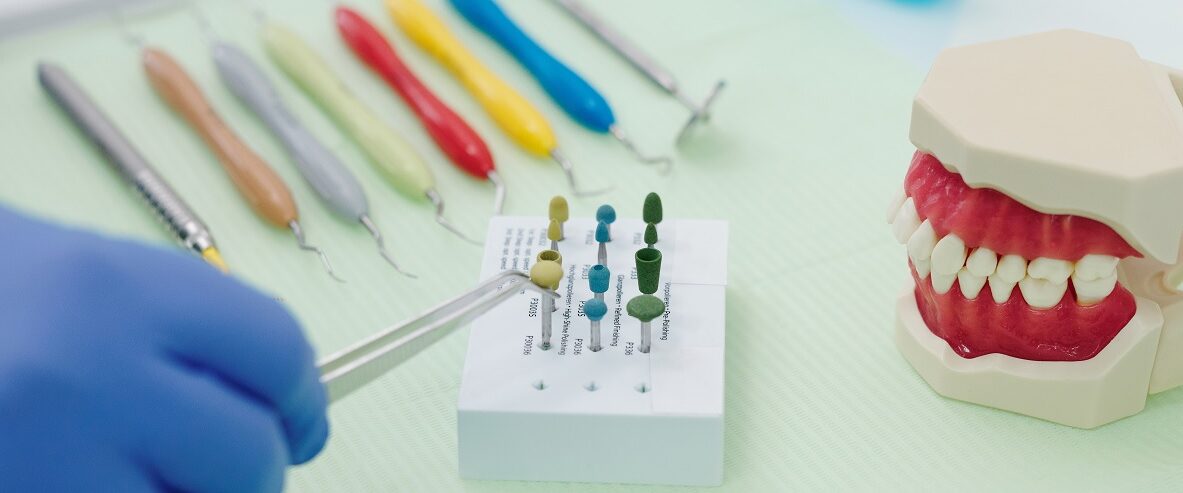
Overbite and crossbite are two common dental issues that can cause discomfort, difficulty chewing, and even lead to more serious dental problems. Fortunately, both overbite and crossbite can be corrected through orthodontic treatment, such as braces or clear aligners. In this article, we will discuss the causes of overbite and crossbite, the different treatment options available, and what to expect during the correction process.
What is an Overbite?
An overbite occurs when the upper front teeth overlap the lower front teeth excessively. While a small overbite is normal, a deep overbite can cause several problems, such as:
- Uneven wear and tear of teeth
- Gum damage
- Speech difficulties
- Jaw pain and discomfort
- Headaches
- Causes of an Overbite
An overbite can be caused by several factors, such as:
- Genetics: Inherited traits such as a small lower jaw or a large upper jaw can cause an overbite.
- Thumb-sucking: Prolonged thumb-sucking can cause the front teeth to protrude and create an overbite.
- Poor oral habits: Tongue-thrusting, where the tongue pushes against the front teeth, can cause an overbite.
- Teeth grinding: Grinding your teeth can cause them to shift forward and lead to an overbite.
Treatment Options for Overbite
The treatment of an overbite depends on the severity of the dental issue. Some of the most common treatment options for overbite include:
- Braces: Traditional braces can correct an overbite by applying pressure to the teeth and shifting them into the correct position.
- Clear Aligners: Clear aligners such as Invisalign are an alternative to traditional braces. They are clear, removable, and can correct mild to moderate overbites.
- Retainers: After completing orthodontic treatment, a retainer is often prescribed to keep the teeth in their new position and prevent them from shifting back.
What is a Crossbite?
A crossbite is a type of malocclusion that occurs when the upper teeth sit inside the lower teeth when biting down. Crossbites can cause several dental problems, such as:
- Tooth decay
- Gum disease
- Difficulty biting and chewing
- Jaw pain and discomfort
- Uneven wear and tear of teeth
- Causes of a Crossbite
A crossbite can be caused by several factors, such as:
- Genetics: Inherited traits such as a narrow upper jaw can cause a crossbite.
- Teeth shifting: Teeth shifting due to missing teeth or poor dental habits can cause a crossbite.
- Thumb-sucking: Prolonged thumb-sucking can cause the front teeth to shift forward and create a crossbite.
- Mouth breathing: Chronic mouth breathing can cause the upper jaw to narrow and lead to a crossbite.
Treatment Options for Crossbite
The treatment of a crossbite depends on the severity of the dental issue. Some of the most common treatment options for crossbite include:
- Braces: Traditional braces can correct a crossbite by applying pressure to the teeth and shifting them into the correct position.
- Clear Aligners: Clear aligners such as Invisalign are an alternative to traditional braces. They are clear, removable, and can correct mild to moderate crossbites.
- Palatal expanders: A palatal expander is an orthodontic appliance that is used to widen the upper jaw and create more space for the teeth.
- Tooth extraction: In some cases, tooth extraction may be necessary to create enough space to correct a crossbite.
What to Expect During the Correction Process
The correction process for an overbite or crossbite depends on the severity of the dental issue and the chosen treatment option. In general, orthodontic treatment can take anywhere from six months to three years, with most cases taking around 18-24 months.
During the correction process, you can expect to visit your orthodontist regularly for adjustments to your braces or aligners. It is essential to follow your orthodontist’s instructions carefully, such as wearing your aligners for the recommended amount of time each day or avoiding certain foods that can damage braces.
It is also common to experience some discomfort during the correction process, such as soreness or pressure on the teeth and gums. Your orthodontist may recommend over-the-counter pain medication or wax to alleviate any discomfort.
After completing orthodontic treatment, it is essential to wear a retainer as prescribed to keep your teeth in their new position and prevent them from shifting back.
Overbite and crossbite are common dental issues that can cause discomfort and lead to more severe dental problems. Fortunately, both overbite and crossbite can be corrected through orthodontic treatment such as braces or clear aligners.
It is essential to seek treatment for overbite and crossbite as early as possible to avoid more severe dental issues. Consult with your orthodontist to determine the best treatment option for your specific needs and what to expect during the correction process.
Remember to follow your orthodontist’s instructions carefully, wear your appliances as prescribed, and attend regular appointments to achieve the best results. With the right treatment and care, you can achieve a healthy, beautiful smile that lasts a lifetime.
